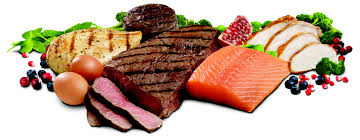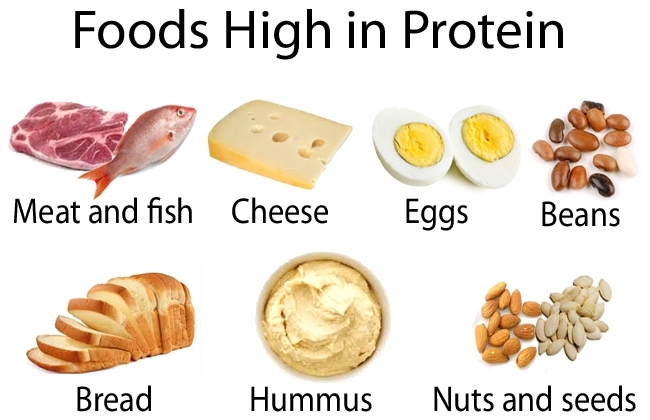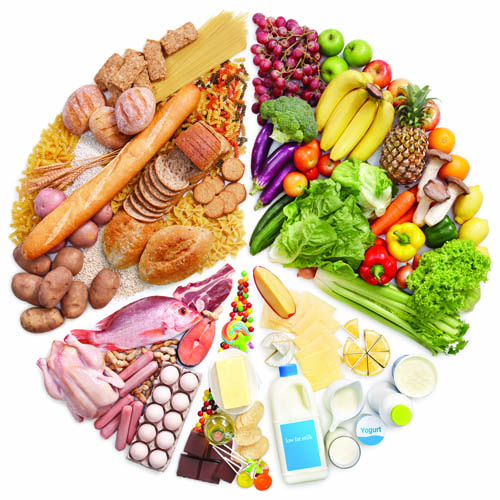Protein is essential to the growth, repair, and maintenance of all body tissues. It is also required for making enzymes – catalysts essential to all life processes, and hormones – powerful chemical messengers that circulate through your bloodstream to specific target cells, where they generate a wide range of biological responses. It also helps your body maintain fluid and electrolyte balance, provides a source of energy, and helps your body fight off disease. These are the powers of protein!

These powers are made possible by eating adequate amounts of protein from a variety of lean meats, fish, and poultry, as well as soy and milk, which supply the body with amino acids, the basic building blocks from which the body can make its own proteins.
Not All Protein Is Created Equal
Foods provide about 20 different amino acids, of which more than half are considered to be ‘nonessential.’ In other words, the body can make them for itself. However, nine other amino acids are considered ‘essential,’ meaning the body is unable to make them on its own. And unlike the carbohydrates and fats we consume, amino acids are not stored in the body. Therefore, the body must rely on a constant and steady supply from the protein-rich foods we eat every day.
So what are the best sources of dietary protein? And is there a difference between animal and vegetable sources? Well, it is true that not all dietary protein is created equal. It really is the protein quality of your diet that, in large part, determines how well a child will grow and develop and how well an adult will maintain his or her health. Put simply, high-quality proteins provide enough of all the essential amino acids needed to support the body’s work, and lower-quality proteins don’t. Two key factors that influence protein quality are the protein’s digestibility and its amino acid composition. Protein digestibility is a measure of the amount of amino acids absorbed from a given protein intake, and amino acid composition refers to the simultaneous availability of all the needed amino acids from a food we choose to eat. In general, animal-sourced proteins (meat, fish, poultry, eggs, and dairy) are considered high-quality proteins, as is soy, a vegetable-sourced protein. However, other vegetable proteins tend to be of much lower quality and are often referred to as ‘incomplete’ proteins because they do not provide all the essential amino acids the body needs. Incomplete proteins can come from fruits, vegetables, grains, and nuts.

Health Benefits: When most of us think about the health benefits of dietary protein – its role in bodybuilding comes to mind, and rightly so. No new body tissue can be built without it. However, research also suggests that the intake of high-quality protein in the context of an overall healthful diet may also have positive effects on our body weight and body composition as we age, as well as play a role in the prevention of chronic diseases such as heart disease, certain types of cancer, and osteoporosis.
Weight Management: Studies have shown that achieving a healthy weight and maintaining that weight can help add years to your life, and scientists believe that dietary protein may play an important role in weight management.
Age-Related Muscle Loss: After about age 40, most adults will lose anywhere between 0.5% and 1% of their skeletal muscle mass each year. And in the early years, this gradual loss may go unnoticed because it might be masked by a concurrent increase in body fat. However, chronic muscle loss or what is known as sarcopenia is estimated to affect about 30% of people over age 60 and may affect more than 50% of those over age 80. Insufficient protein intake in older adults can contribute to a loss of muscle, and although the optimal amount of protein to prevent or offset the progression of sarcopenia has yet to be established, research findings suggest that protein intakes modestly above the present recommended dietary allowance of 0.8 grams per kilogram of body weight per day (i.e. 1 gram per kilogram of body weight per day or higher) enhance muscle mass in older adults who regularly perform resistance exercise. Protein intake in older adults also appears to have a more beneficial effect when consumed within an hour or so of resistance exercise. Emerging research also suggests that dairy protein, especially whey protein, may minimize sarcopenia because of its high concentration of leucine, an amino acid known to stimulate muscle protein synthesis.
Cardiovascular Disease: One concern that has been raised about the trend in high-protein diets for weight loss has been that eating diets high in protein and fat, and low in carbohydrate, would harm the heart. However, recent research findings suggest that if done in a healthy way, eating a little more protein, especially vegetable protein, while cutting back on refined carbohydrates may actually benefit the heart.
How Much Protein Is Enough?
Although no one-size-fits-all answer exists for that question and research on the topic is still emerging, the current recommended dietary allowance for protein is 0.8 grams per kilogram of body weight per day for healthy young adults. That comes to about 62 grams of protein a day for a person who weighs 170 pounds. Although growing children, pregnant women, nursing mothers, and older adults may need a little more (1.0-1.3 grams per kilogram of body weight), getting the minimum daily requirement of protein is fairly easy. Cereal with milk for breakfast, a peanut butter and jelly sandwich for lunch, and a piece of fish with a side of beans for dinner adds up to about 70 grams of protein. It’s also important to pay attention to what comes along with the protein in your food choices. An eight-ounce broiled porterhouse steak is a great source of complete protein-54 grams worth. But it also delivers 44 grams of fat, 16 of which are saturated. Saturated fats raise blood cholesterol, and high blood cholesterol increases the risk of heart disease. On the other hand, a cup of cooked lentils has 18 grams of protein, but less than one gram of fat.

Vegetable sources of protein, including soy protein beverage mixes, are also an excellent choice and many also provide healthful amounts of other essential nutrients such as fiber, vitamins, and minerals. The best animal protein choices are fish and poultry. If you are partial to red meat, such as beef, pork, or lamb, stick with the leanest cuts, choose moderate portion sizes, and make it only an occasional part of your diet.
